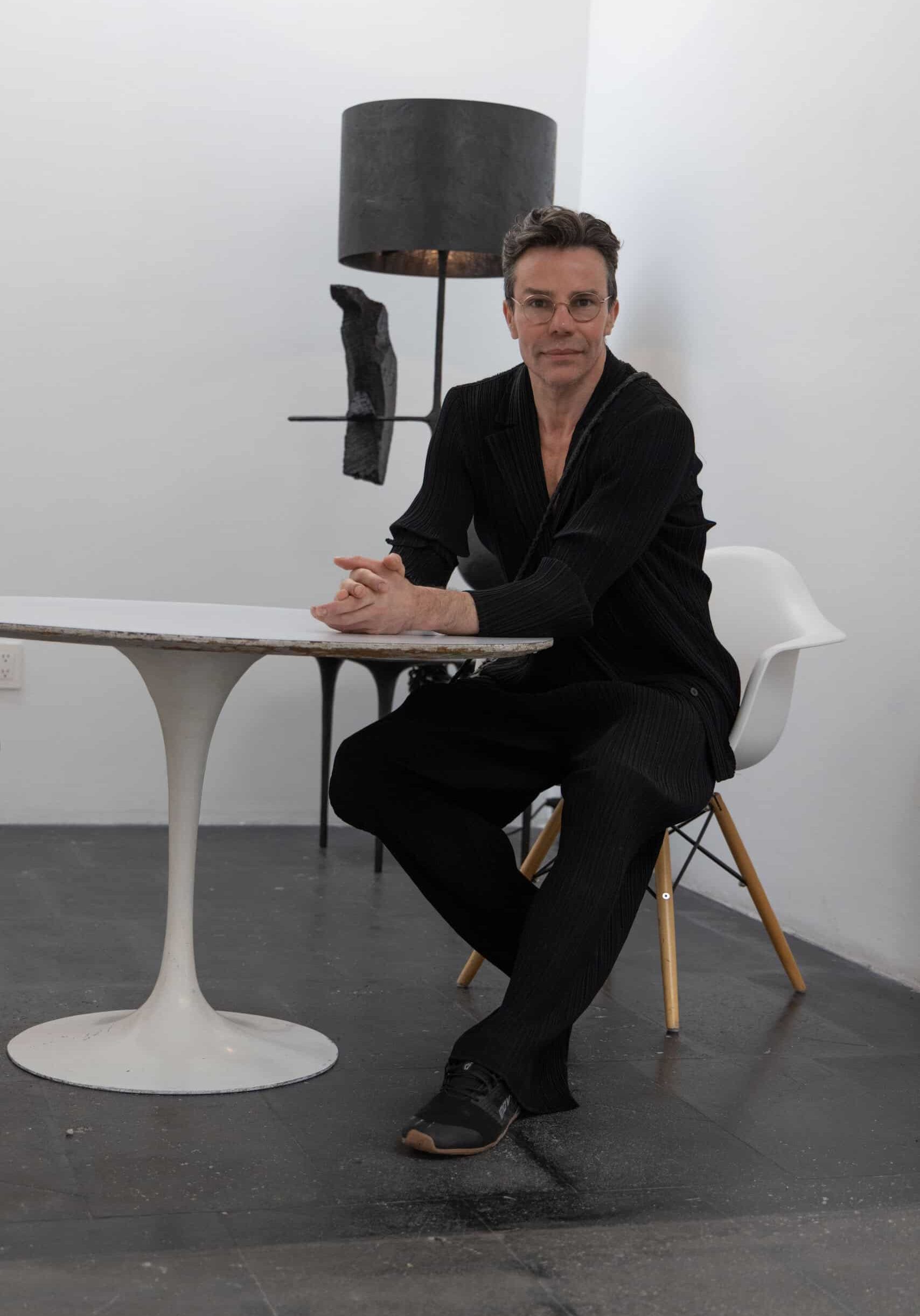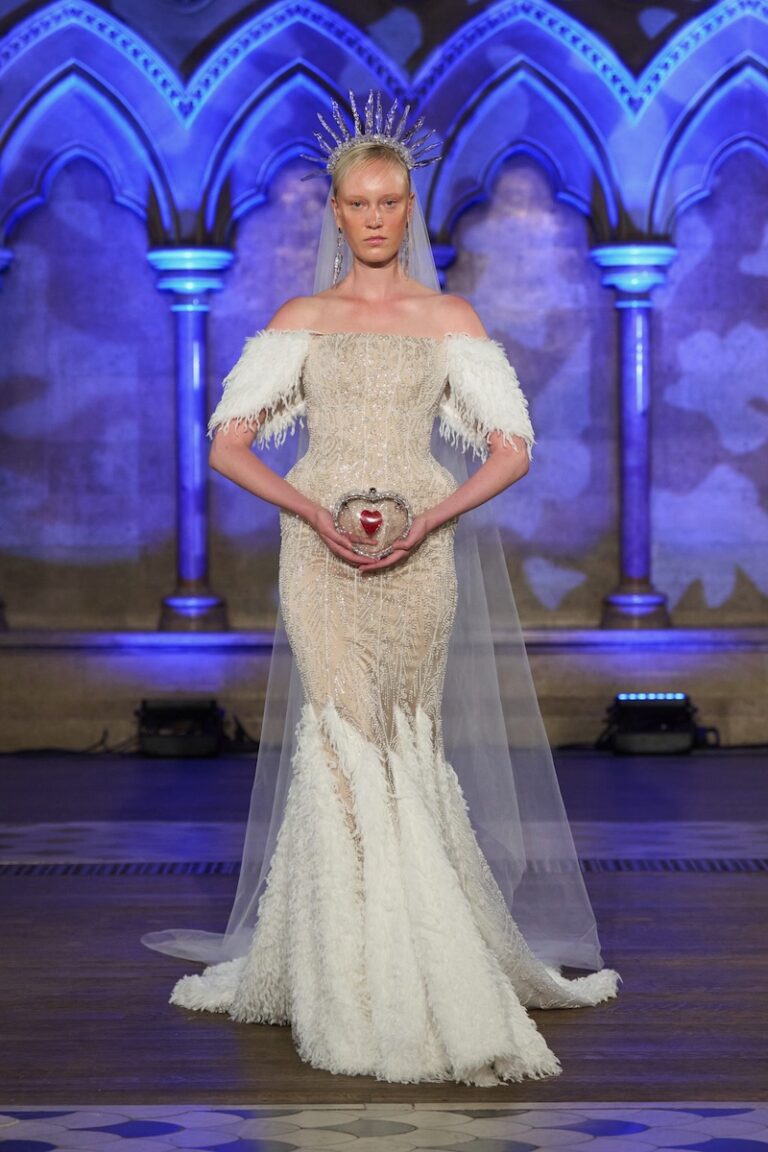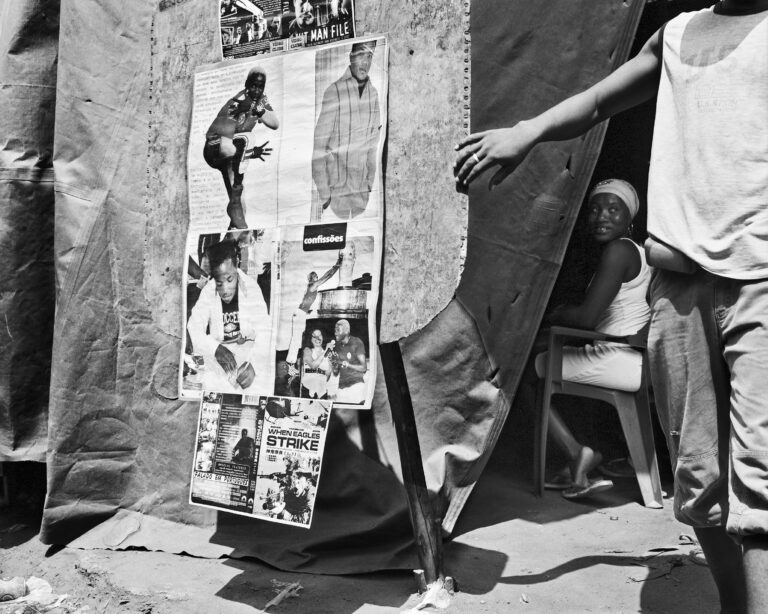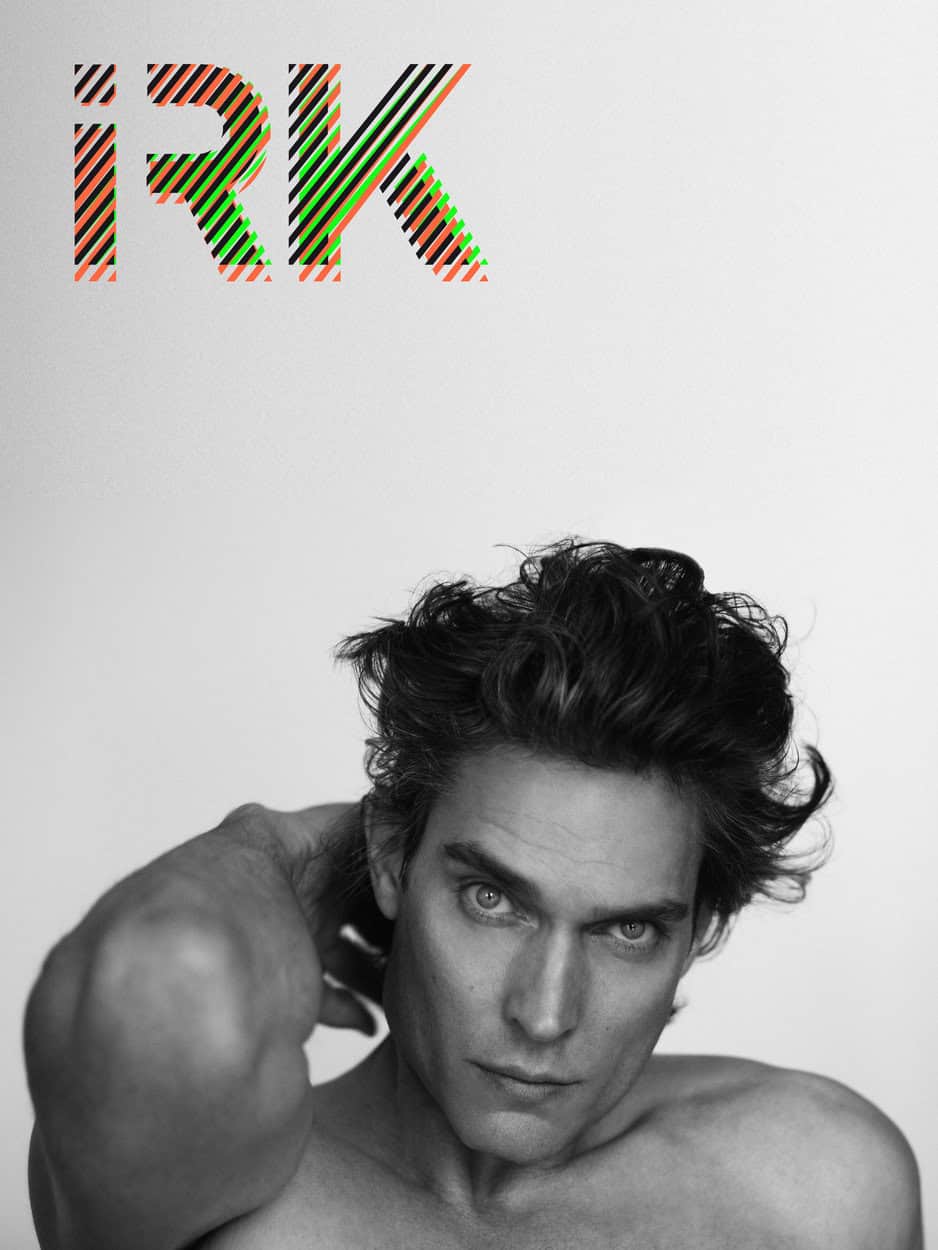
The Future Of Men’s Fashion Through The Eyes Of Donny Lewis
Patrick Duffy
Donny Lewis has ideas. This is an exciting time for the fashion industry and now more than ever the future of the planet depends on a complex system that is in need of a redesign. The demand for industry wide change isn’t easy and requires perspective, persistence, and a whole lotta philosophical reflection to help us navigate the pressing issues linked to our everyday lives.
Enter Donny Lewis. A poet, philosopher, and actor born in Lubbock, Texas. You probably recognize Mr. Lewis, as he has worked with every major international fashion brand earning him supermodel status. Hailing from a town so small his graduating class was just 12 students, and where he is a proud member of a farming family who raised cotton, sheep, and even boarder collies to living and working in New York, Sydney, London, Milan, Barcelona, Paris, and Munich.
I caught up with Mr. Lewis to talk about his passion to change how the fashion industry works, from the inside out. His personal mission is to help find a holistic way to permanently solve the human destruction of our planet and the ethical crises we face. If that isn’t swoon-worthy, well…I don’t know what is!
How did you get into the fashion industry?
That is a pretty good question and one that I am happy that someone actually asked me. I have heard and read several versions of this story through the years, most of these stories have surprised me. lol So, since you asked, let me end the myth. Ready? I was showing sheep, at a stock show, in Texas when a former Miss Rodeo that had done a fair bit of modeling approached with the idea that I could maybe be a model and make some money to pay for college. I did not know what she was talking about but was flattered nonetheless. She offered to pay for some pictures at a local photo studio and she would send them to a contact she had in Dallas. This contact was Mike Beaty and he worked at the Campbell Agency in Dallas as well as ran a model search expo called the MB expo. Basically, a sheep show but with people in it. I was not really sure what I thought about all of this but I went along as it could not hurt anything, and as I said, it was flattering. I was still in high school at the time so for me, there was no rush. I went on to sign up with The Campbell Agency, (still my agency in Dallas to this day). I was not sure I would really try the modeling thing though until I met a model scout named Tony Perkins. Mike Beaty invited me to be a special guest at his MB expo so that I could meet all the agents from around the world. Tony and I hit it off. He was an avid reader, always a big plus in my book, and he had traveled all over the world nine times in his never-ending quest to find the Next face of the fashion world. I could listen to him tell his stories of his travels for hours and did. It was really through him that I decided to give modeling a real chance, well, that and I had run out of money for college and the agency was willing to front me a plane ticket, place to stay, and a bit of spending money to try it out in NYC. I was having fun up in NYC and got what I considered to be a great job back then, a showroom for Giorgio Armani, this put enough money in my account that I could afford to stay in NYC, and really see if I could make it as a model. Soon after that, I landed my first Guess jeans campaign with co-stars Laetitia Casta and Ian Somerhalder shooting in Miami. That was really it from that point there was no looking back, I was in the fashion industry.
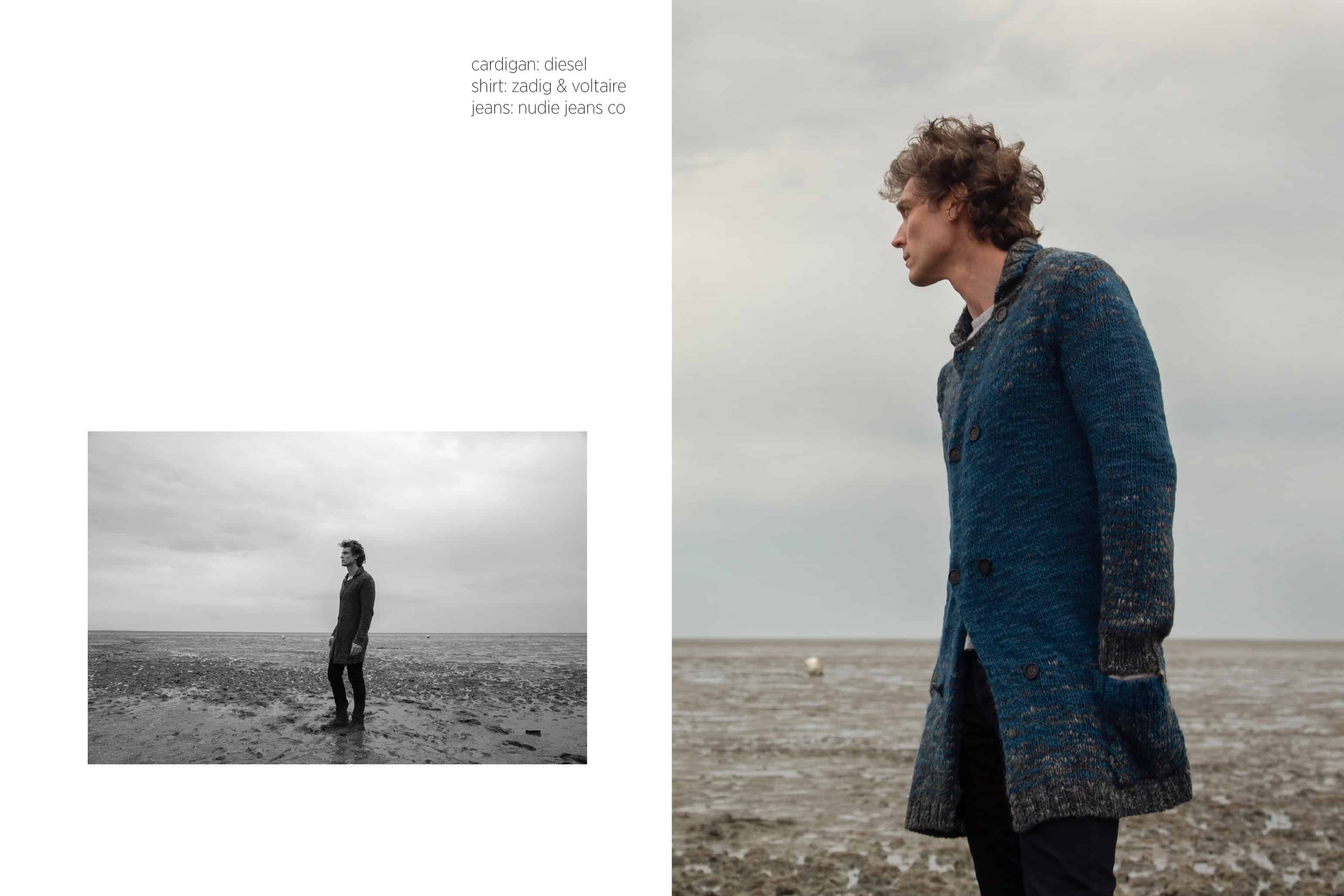
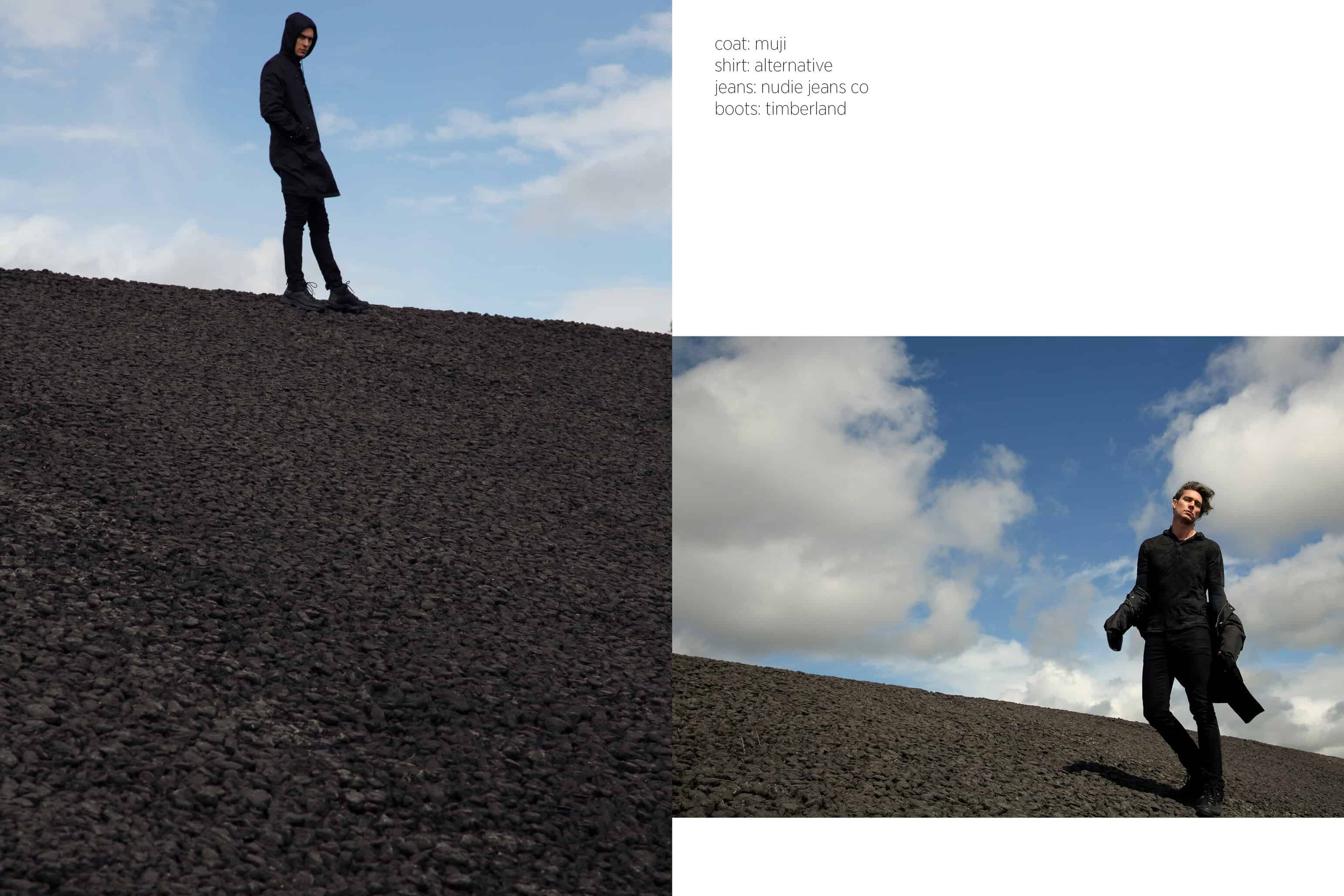
Along the way did you realize that the industry wasn’t all about beauty and glamour?
I am not sure exactly when I started to add things up and put things together that there might be something hiding behind the glitz.
Also, I am not here to bash on the fashion industry either. We have all made mistakes in our lives that we have had to try to correct. As someone that has been on the inside of the business for a good number of years, I can say that the people in the industry, the creatives, really are just about creating beautiful things. They are artists in many ways. Very often I am afraid we just never thought about where the paint and the canvas came from or what happened to it once the painting was complete.
Now that I have said that, this was sort of my journey as I started in the business during the Anti Fur of the ’90s that was the PETA cause, “I’d rather be naked than wear fur!” remember that? Then we heard about the child labor issues from time to time, it would come in a news cycle but then it would go away and you just thought it was fixed. Then came the fast fashion which was so fun as long as you did not look deeper. The luxury sector had to do something to keep up so that started the massive production excess, and more collections a year than months. That’s when the outlets as a business model started. They were producing so much, knowing that they had no real market for it but that consumers would buy it at a discount from an outlet. The fast-fashion excess went to landfills or was dumped for pennies a ton in poorer countries or even burned. Again though, you would have to look deeper if you wanted to discover any of these things. You might be able to reasonably figure them out if you just sat and wondered about what happens to all the waste but that is just not where humanity has been until recently I believe. This past year a lot of people, have had a lot of time, to sit and ponder things as we all slowed down. It’s one of the few positives I think we might be able to take out of the pandemic.
My personal journey to a deeper understanding of some of the issues facing the industry came slowly as I traveled the world modeling for so many brands. I am a farm boy from a really small town in rural Texas and as such, I was not exposed to a lot of extremes either in excess or lack, both were more just concepts you read about in the paper or the many, many novels. When I was able to really experience these things it continued to help form a fundamental understanding and philosophy for me. I slowly started to see how we are all connected as humanity inside nature, and that people are people. This may seem very simplistic or overly obvious but it seems also to be something that we all often forget. The fashion industry seems especially prone to this as we very often just turned a blind eye to the ugly parts and shined the light brighter on the beautiful bits.
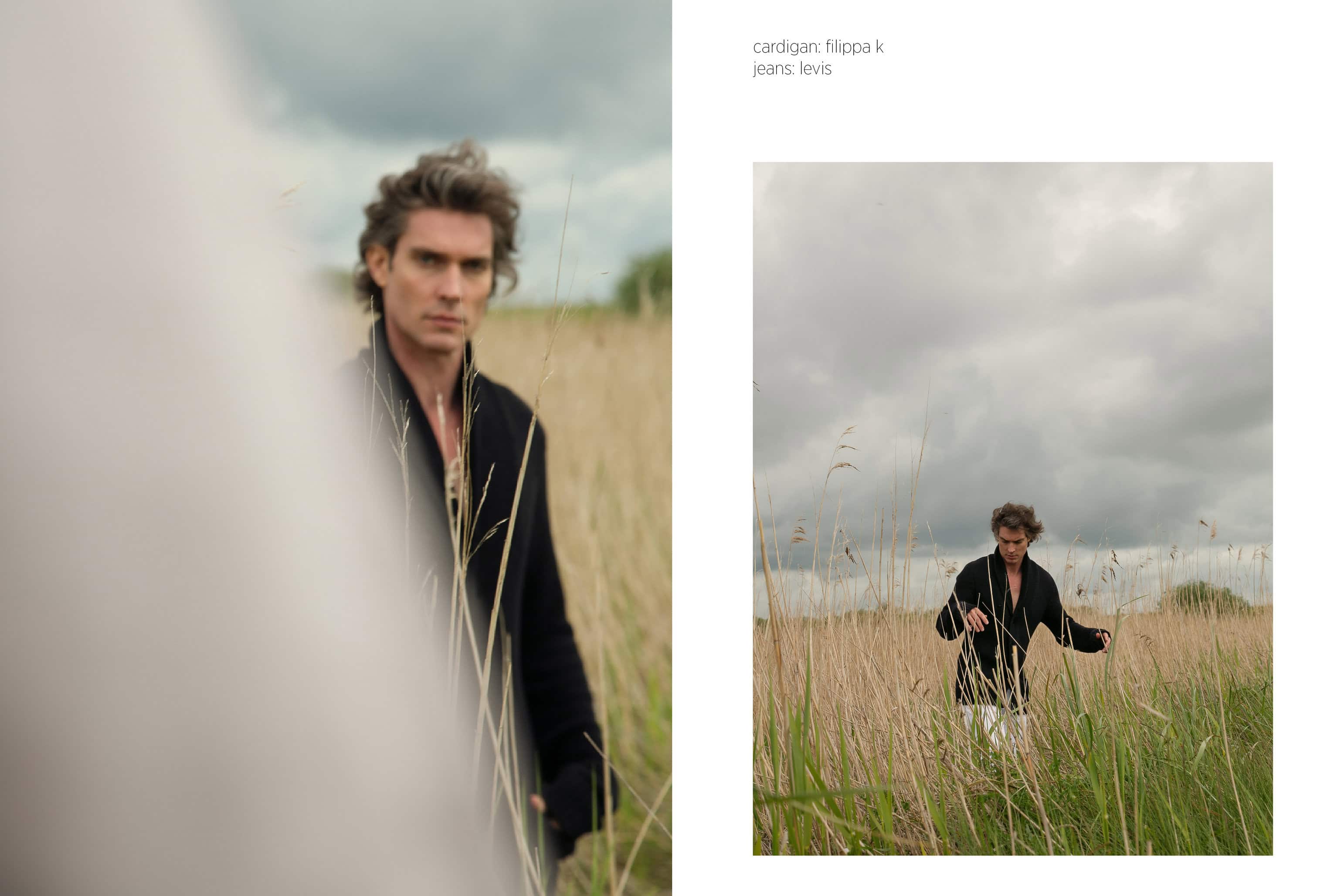
Was there ever a moral dilemma with your work? How did you address that?
I have certainly worked for brands that are not sustainably driven! If you have worked much at all in the fashion business you have done that. hahaha Seriously though, for a very long time I was just ignorant of the dirtier issues that the glamor of the fashion industry covers up so well. Also, I am a model by profession and as such, I do work for those that pay me. That is the job after all. The moral dilemma gets assuaged because I think that my position in the modeling world actually gives me a unique place to speak to people from inside the business to try to help steer the change. I look at the fashion industry as a giant cargo shipping vessel. You don’t turn those things on a dime, it takes time and effort to change direction. It also takes those little tugboats that push up to them and help them move.
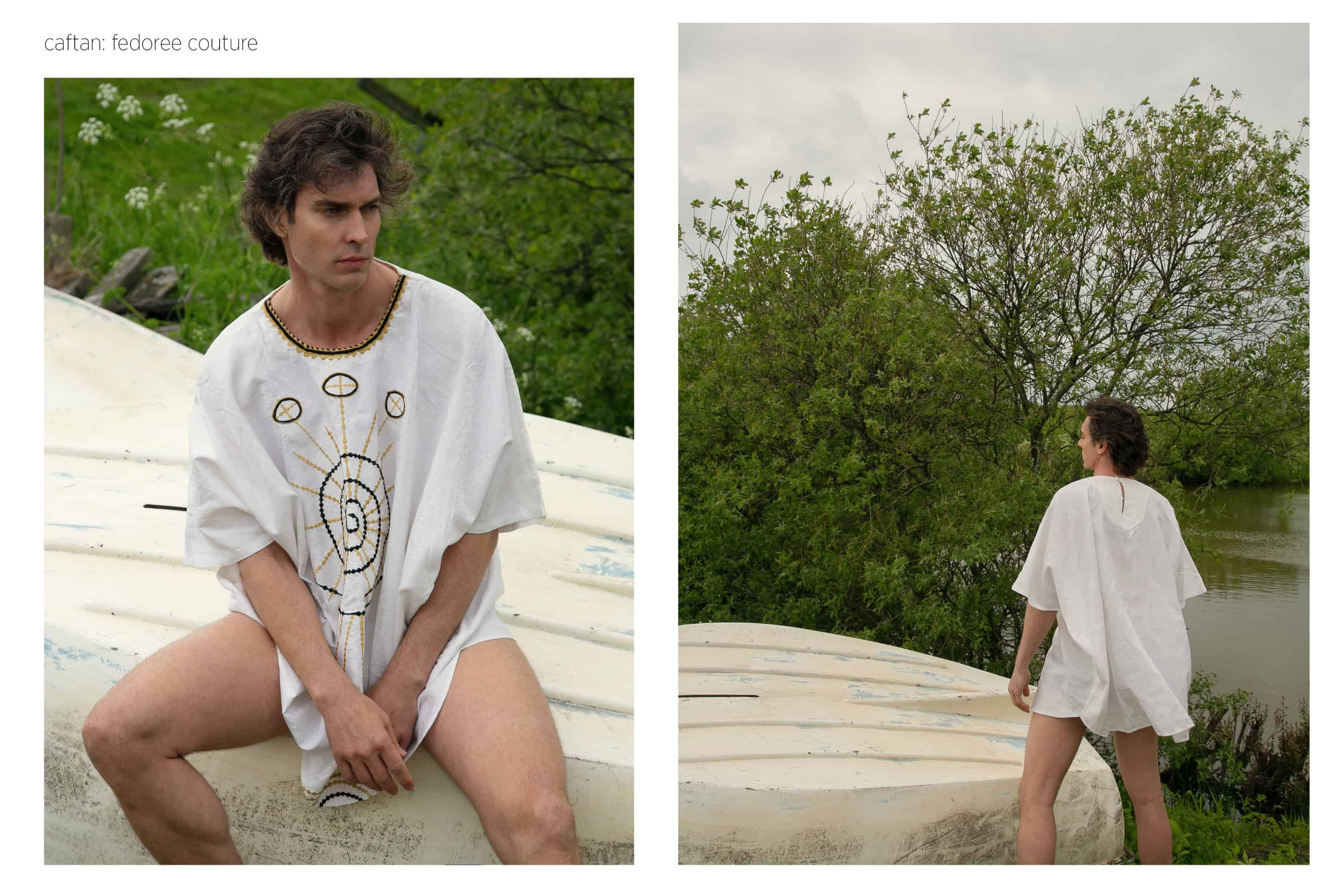
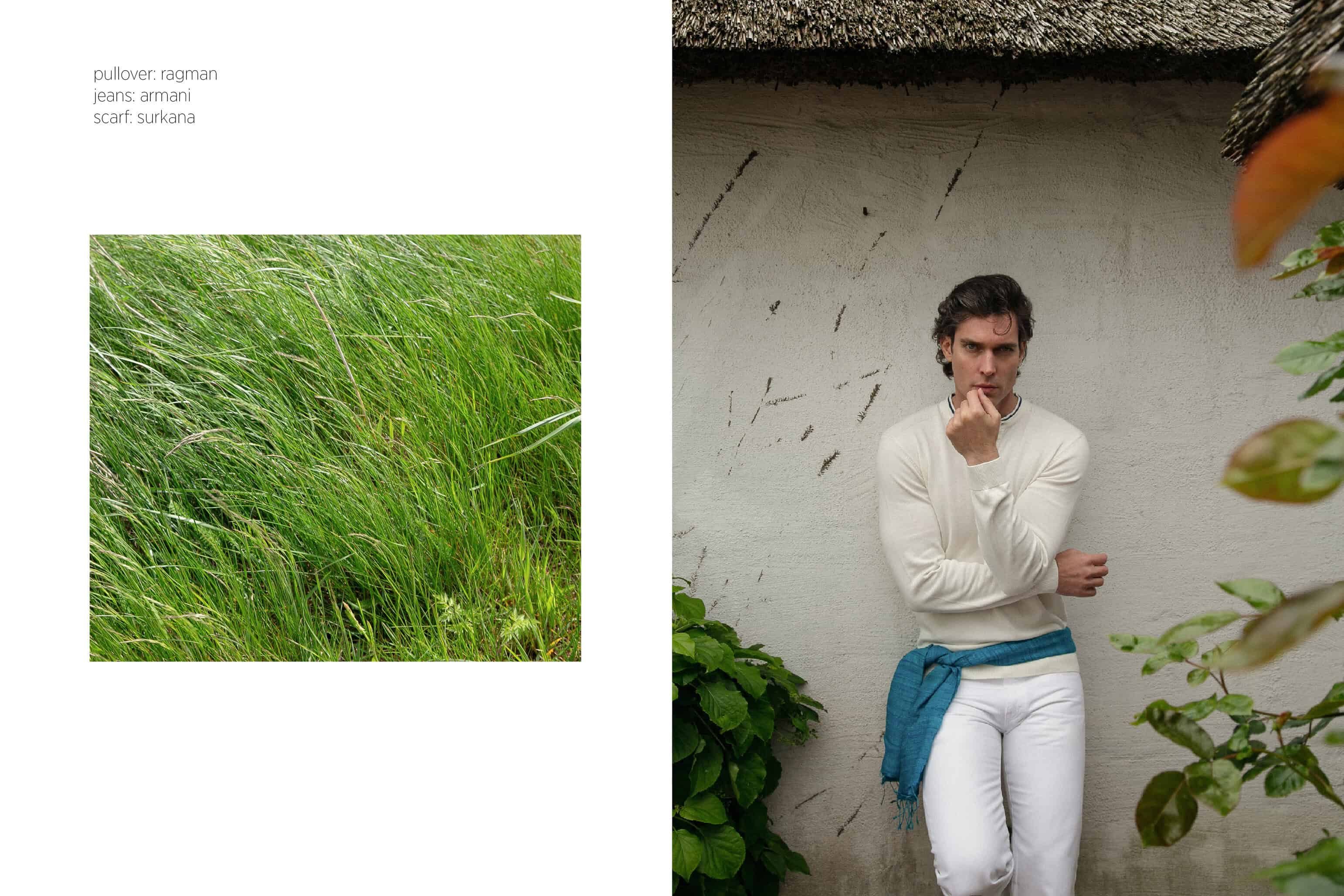
Your talents go beyond the runway and pages of a magazine, as a writer, poet, and storyteller you’ve woven this into your work and now focused on sustainability consulting circularity and mending the fashion industry. Where did you begin and what is your process?
After I was able to start seeing the problem as a whole, the overconsumption, overproduction, and waste in the industry, I started looking for some way to make a difference. That led me to AI in 2016 and it’s not as crazy a jump as you might think. My penchant for philosophy has often led me down the road of science and technology from physics to some light reading on super-intelligent machines. Then eureka! Let’s use this in the fashion industry!
I thought, it would be great if we would be able to build specific algorithms (A.I. edit) for brands that could help them to utilize the mountains of data they have available. It could help eliminate waste by streamlining supply chains for a start, but as each company has different needs you could set up custom-tailored solutions to each band’s problems! This was a win-win way to fix things from the inside. It was to that end I started working with AI expert Simon Schneider and ECSI consulting in the creation of a platform to help the industry utilize this resource. What we soon discovered was that fashion is on the cutting edge of fashion, but they have been left on the cutting room floor concerning technology. This was really a wake-up call to me, on several fronts. A swift reminder that cash is king in business, if the bottom line is not impacted sufficiently you cannot effect a change. This rewarding learning process gave me huge insights into the inner workings of large fashion companies, it also helped me understand that we would need to inform the consumers of their direct impact to change the bottom line so that we can help the industry improve to a more circular model.
That circular model is the key to everything. My process is to keep in mind that everything is connected. I try to look at each problem individually and holistically. Meaning what is the micro problem and how does it affect the whole. Can we find a way to improve both simultaneously? Let’s say I’m looking for a partner to create a capsule collection, for example. I will try to learn the strengths and the needs of my partner and see if I have the resources and ability to help them improve on the circular path, be that through outreach and brand awareness or through consultation and forming cooperation with perhaps previously unknown circular fashion solutions. That is really what the DVS Fashion by DL is all about. The Tee-shirts or DVS Ts are produced in partnership with the trusted circular Tee-mill group, these shirts help support two of my favorite charities as well as Tee-mill and their amazing transparent circular supply chain. This is important I believe in showing that it is not just a pipe dream, these products are out there and they are available now.
As far as the writing is concerned and how it fits, well, I have always expressed my own personal creativity in the written word, even as a very young man. Though as time has passed much of what I write has been informed and influenced by that simple philosophy that I mentioned earlier, we are all connected and people are people. I try to express this idea through a story, with the hope that the more it is understood the more we will all be willing to look at our mistakes be they, personal, industry, or even society-wide, and do our best to correct them. To me, it is part of the circle or the loop we hope to close as we move into this brave new regenerative world.
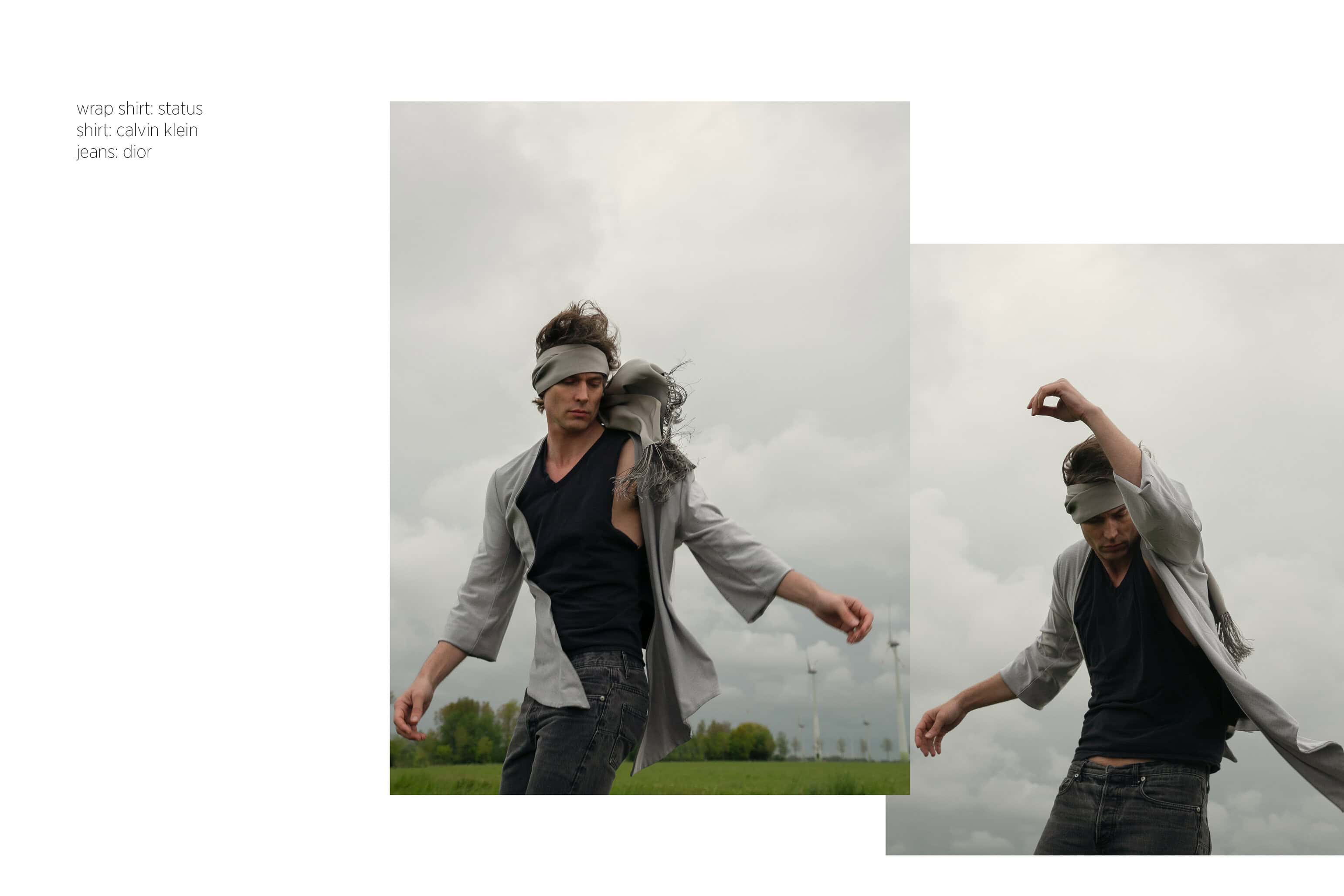
You work with the biggest names in the industry, mostly men’s fashion. What’s missing from the men’s fashion space that you hope to bring light to?
I suppose the biggest thing is that fashion is a women’s dominated field but men don’t walk around naked either. There are quite a few spokespeople for changing the fashion industry on the women’s side but very few on the men’s side. Not just the high fashion fashionisto types but for men in general of all types. Everyone wants to look good, to be well dressed, well-groomed. We may all differ on what we believe well dressed or well-groomed to be, but each in their own fashion wants to look their best. Men’s consumer behavior is different typically than that of women. Most men will not buy new jeans for the season, they will buy a few pairs per year. This is good when you look at it from a slow fashion, waste less, perspective but what if we could make even those purchases more sustainable? Why shouldn’t they be? Men may not be the fashion consumer that women often are but that does not mean that they are not as conscious of the way they look or their responsibility to shop sustainably. Let’s make sure we give them that choice, not as an afterthought but on purpose. This is from fashion to cosmetics, don’t let the men’s lines be an afterthought, develop these in conjunction to give this consumer a clear conscience choice.
Are you hopeful for the future? You have children, what do they think? What do you talk about with them about what you see ahead?
Cautiously optimistic? Does that count as hopeful? lol… I am hopeful, I believe that we have the tools available now to effect the change that we all know we need to make in order to secure a better world or “a” world for our children. Like they say there is no planet B. What we need is the will and the drive to make those changes and as many people as possible to step up and help show the way. Like you Patrick! What you have done through the Global Fashion Exchange and the Swap chain are remarkable and that network seems to just keep growing and becoming a stronger alliance for the voice of regeneration. Thank you.
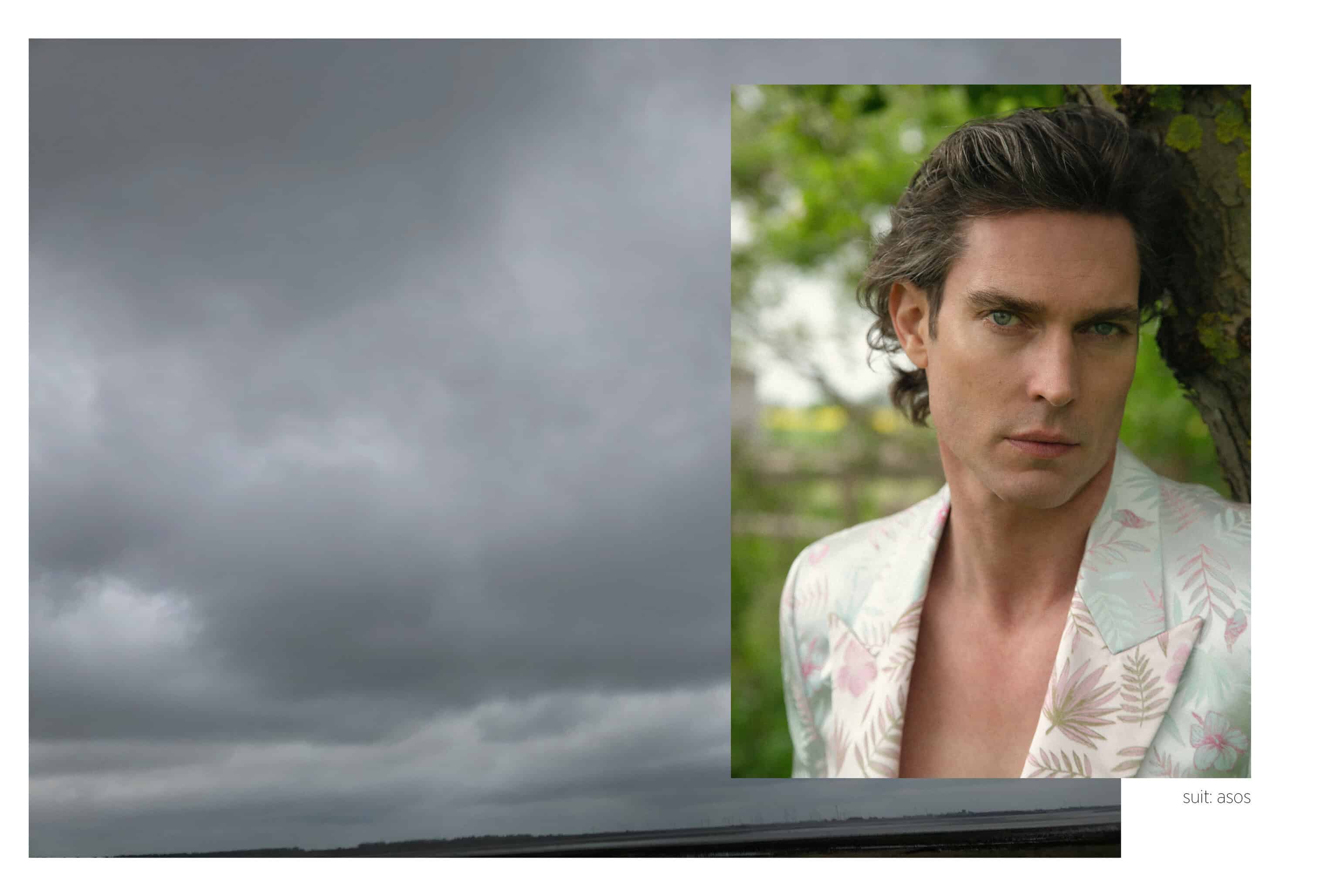
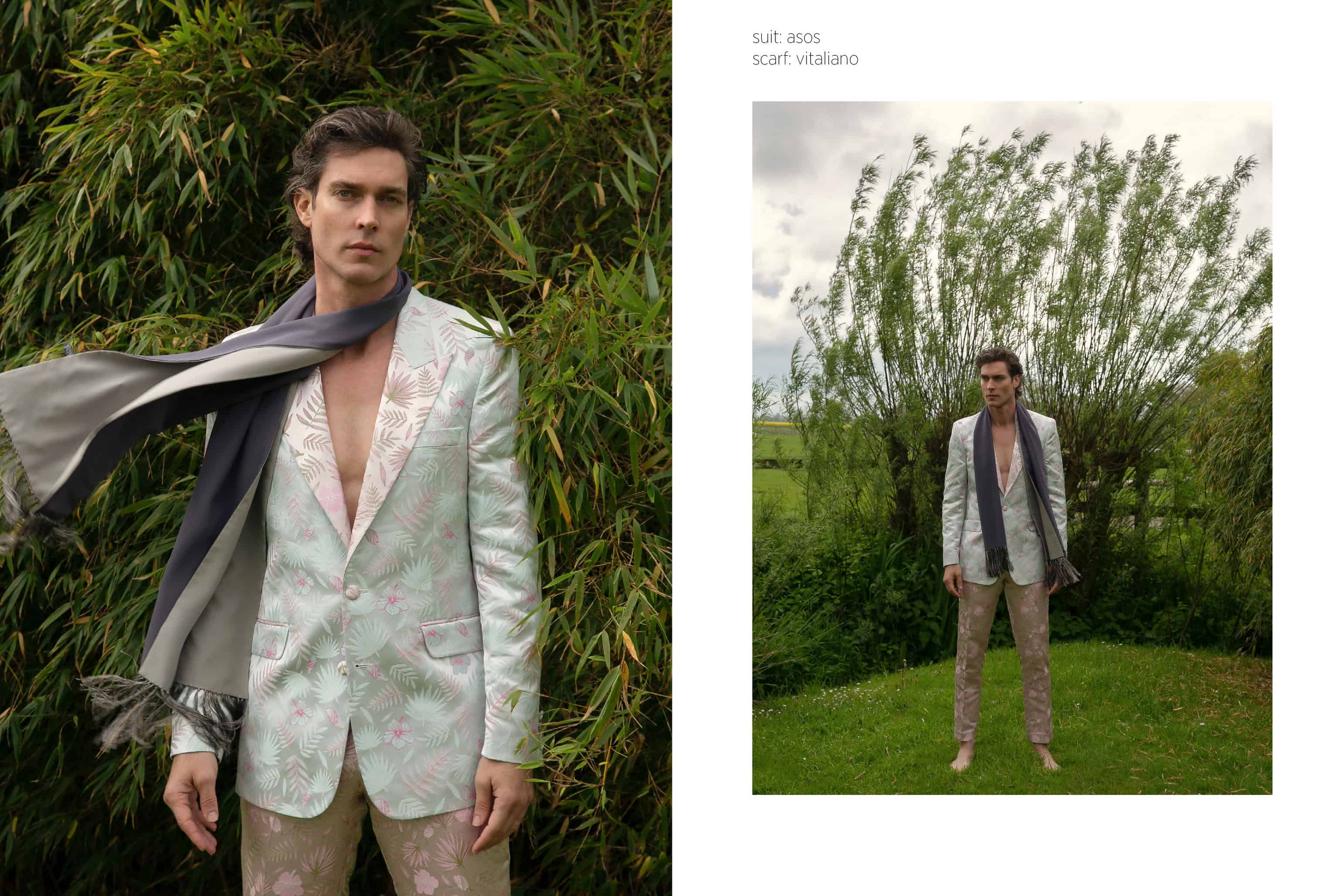
Do you think people + planet + profit, the triple bottom line can thrive in a post-Covid era?
Yes, of course, that is exactly why we are stepping out and raising our voices pushing to make these moves towards circularity in the economy and fashion. I think we will look back on the pre-Covid era surprised that we were able to live that way. I say give me that triple bottom line and I’ll show you a circle.
What 3 items can you NOT live without? And how did you acquire them?
I’m really not that attached to things but I’ll do my best. My jewelry, every piece I own and wear has special meaning for me and has been my constant companion on countless trips. It is hard to find a nice keepsake for some of the amazing experiences and places that you get to see in this business as often you are not getting on a plane to fly home but to the next location then the next. It was this process that taught me to pick up special pieces of jewelry.
My bike or bicycles, I love the feeling of freedom. I was actually a half-owner of a bike store at one point and my favorite bike I ride the most is from that store!
My books, I have not kept even a percentage of the books that I have enjoyed reading in my life but I do have a collection of some of the most impactful for me. I have collected them over many years. I almost said my capsule collection denim Prada jacket as I have loved that staple piece of my wardrobe for so long but nah, it’s the books.
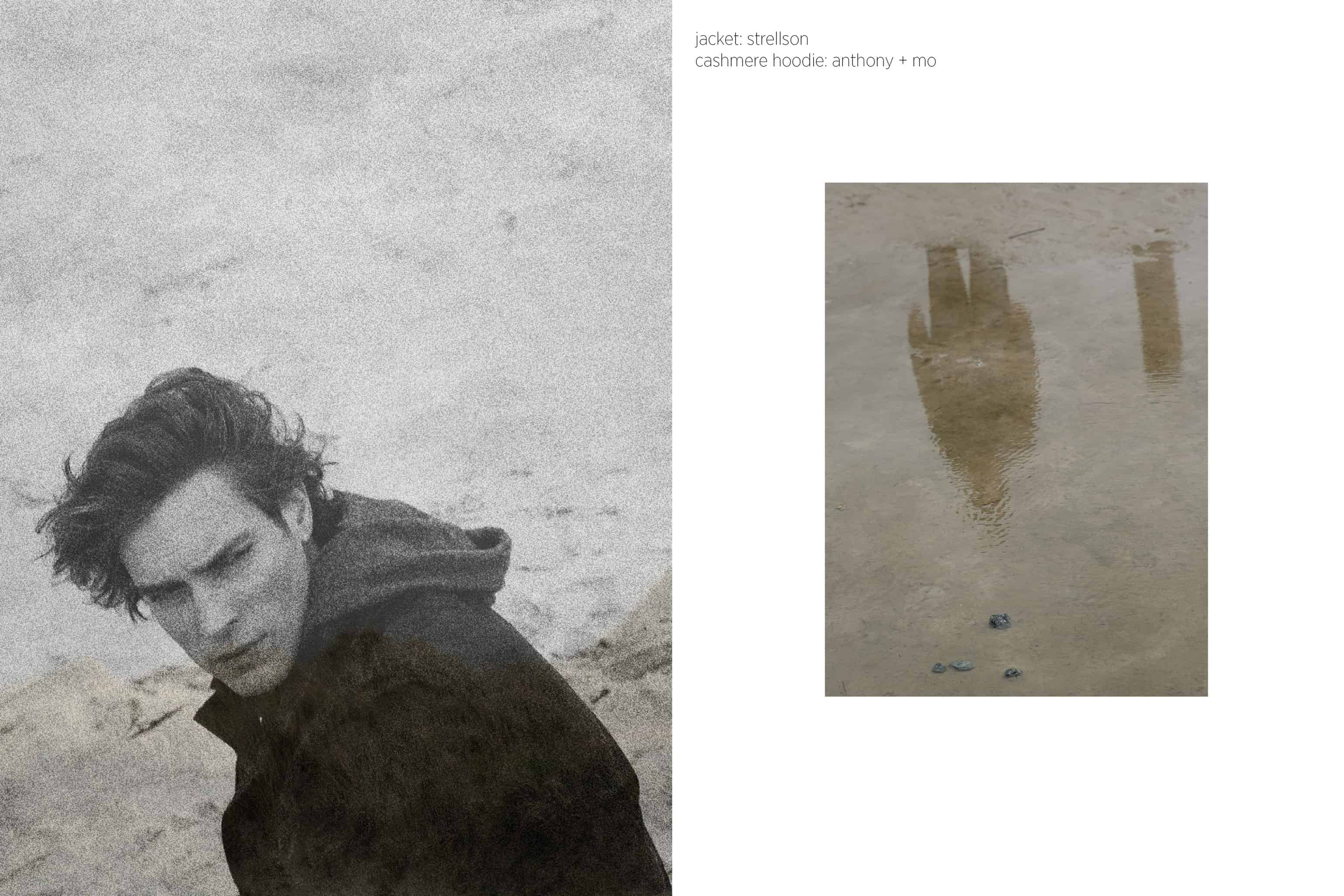
Do you think people don’t understand their choices have an impact?
This takes me back to the writing traveling answer because it took me years to understand what impact everyday choices can make. So for the greater world and consumers out there, I don’t believe that the message has fully penetrated or come to a level of saturation for the understanding that each small choice is connected and when put together with everyone else’s choices they have a huge impact. We speak about voting with your wallet, and we really mean that! Every purchase needs to be looked at through this lens of supporting those that are helping to make this shift to circularity.
There is that saying about if a butterfly flaps its wings in South America it causes a storm in Europe…nope, I’ve been so good about not being sidetracked so don’t get me started on Lorenz and chaos theory! LOL
This editorial is vintage and 2nd hand, but you’d never know it! What’s the message here?
Someone once said to me in an interview that if you want to sell something you have to find a way to make it sexy. This person was really smart and I think very much on to the right idea. It does not have to be sexy in an actual physical sort of way but sexy in a sort of attractive, cool, interesting sort of way. The idea in these images to show that preloved fashion is still sexy. It is creative, and it is individual in a way that you almost cannot have in anything outside of Couture and that is part of what makes Couture so sexy. Part of the fun in swapping and buying vintage is being able to create a very unique look for yourself, a truly personal style. The location being on the North Sea in Germany was the perfect backdrop to showcase this as it is one of the most circularly principled areas I have ever been in personally. Nature left to itself or worked with instead of against, from the production of electricity to the eco-friendly integrated bio farming. The technology everywhere improving the way we live in accordance with nature seemed like the sexiest place to show a sustainable fashion principle of using the existing.
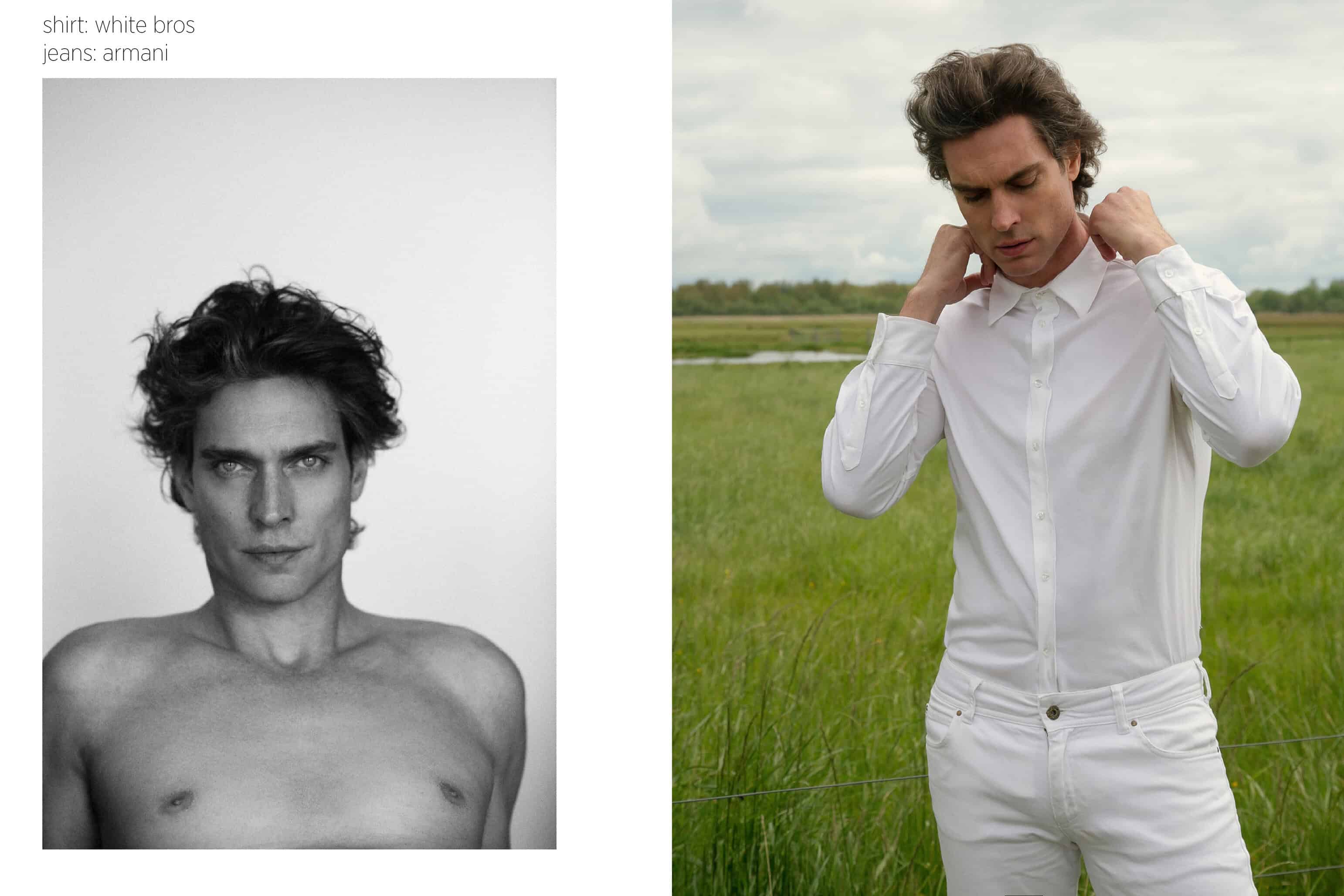
Editorial Info:
Photography: Kristina Lewis IG
Sustainable Activist Model Donny Lewis IG
Special thanks for styling go to:
GERDISMANN (Fraunhoferstr 9, 80469 München) IG
and
Location:
Inspiration from location notes:
The North Sea located on the North coast of Germany just South of the Danish boarder is a place that gives off a very special aura. The industry and harbor of Hamburg and Bremen are not far away, the massive freighters in those cities are always on display. They let you know that the world is connected as we see the mass of things from every corner of the globe delivered and loaded onto these engines of commerce. When you stand upon the dikes that hold back the tide and turn to look at the wind powered renewable energy turbines churning away on the landscape you have another feeling of connectedness. The world is moving to a more sustainable future because we must. It is necessary not only for ourselves but for the sake of every living thing on the planet. It lets us know that just as the human ingenuity responsible for creating these massive ships, it will take all of our ingenuity to roll back the damage we have done to the world without rolling back the progress we have made. It is our job to insure that we have a better world in all respects, leaving to future generations of all the connected lives on this planet.
It is an editorial created with 100% resold fashion. The mostly dark stylings and feel in the photographs plays with the portions of desolation and isolation feelings with the pure white being that balanced contrast. Just enough floral print and green to remind us of the beauty in this world we are trying to save. The use of the blue skies and green fields just hints there is something behind all the efforts and something to look forward to as well.
The interspersed black and white images made to further illustrate the balance and contrast ideas. The ideas that are felt down to the bone as the cold North wind blows into your bones and powers the heater in your home.
Share this post
Patrick Duffy is the founder of Global Fashion Exchange, a company catalyzing positive impact through strategic consulting roadmaps focusing on supply chain transparency, worker rights, responsible production for B2B as well as consumer facing programming and community building focusing on aligning people or communities with the SDGs.
Experience developing networks and activating ideas, guiding creative teams globally, and working with institutions like the Victoria and Albert Museum and UNESCO, and iconic spaces such as Federation Square Melbourne, Madison Square Garden, Bryant Park in New York City, and The Dolby Theatre in Los Angeles.
Patrick has produced clothing swaps all over the world from, with GFX Active in over 100 countries. Each GFX event focuses on building community, education and transformational business models. Partnering with global brands, key stakeholders, and academia to help create awareness and positive impact through conscious consumption
Patrick harnesses the power of media to create positive social and environmental impact. Through storytelling, education, and advocacy, he raises awareness, inspires action, to catalyze change. By highlighting issues and solutions, Patrick creates strategic campaigns to engage audiences, influence attitudes and behaviors, and contribute to a more sustainable and just world. Additionally, Patrick is the Sustainability and Positive Impact Director of Paris based @IRKMagazine and Editor In Chief of @IRKLiving
Patrick has produced and co-curated events and marketing/PR campaigns for recognized brands across art, fashion, and tech spaces including @virginhotels @britishfashioncouncil @mspdid @moethennessy @microsoft @lagosfashionweekofficial @perutradenyc @fashionimpactfund @istitutomarangonidubai @peaceboatus @lisboafashionweek and more spanning 15 years and hundreds of events in 5 continents.
Read Next

